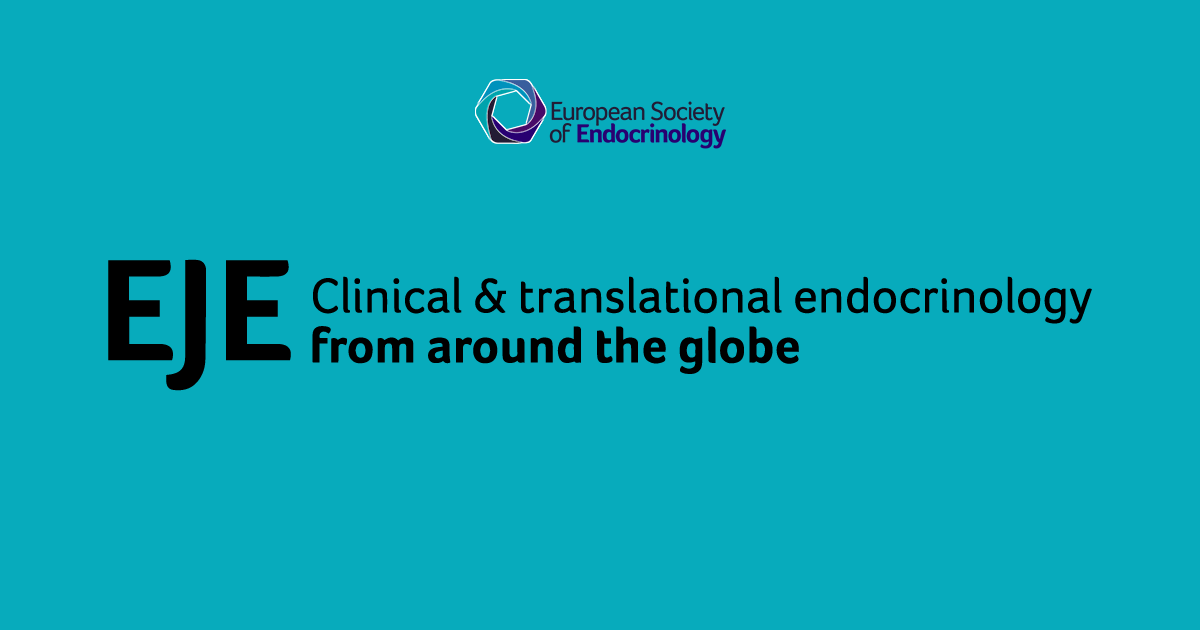

Journal Name: European Journal of Endocrinology
Overview
The European Journal of Endocrinology (EJE) is a leading peer-reviewed journal that publishes high-quality research in the field of endocrinology. Since its establishment, EJE has become a prominent publication that serves as an essential resource for endocrinologists, researchers, and healthcare professionals. The journal covers a broad spectrum of topics related to the study of hormones and endocrine disorders, focusing on both clinical and basic research in the field.
EJE offers a comprehensive platform for publishing original research articles, reviews, and short communications on various aspects of endocrinology. Topics covered by the journal include metabolic disorders, thyroid diseases, diabetes, obesity, reproductive endocrinology, adrenal disorders, and bone metabolism. The journal plays a key role in advancing the understanding of endocrine pathophysiology and improving patient care through evidence-based research.
One of the unique features of the European Journal of Endocrinology is its hybrid publishing model. This allows authors to choose between subscription-based access and open access publication, providing flexibility for researchers and making the journal accessible to a global audience. The journal’s editorial board consists of leading experts in the field, ensuring the publication of cutting-edge and clinically relevant research.
EJE is indexed in major databases such as PubMed, Scopus, and Web of Science, reflecting its strong academic reputation and widespread impact in the field of endocrinology. With an impressive impact factor and a global readership, the journal continues to shape the future of endocrinology research and clinical practice.
About
The scope of the European Journal of Endocrinology is vast and covers all areas of endocrinology, with a special focus on research that contributes to the understanding and treatment of endocrine diseases. The journal is committed to publishing high-quality studies that bridge the gap between basic research and clinical practice.
Key areas covered by the journal include:
-
Metabolic Disorders and Diabetes: Research on metabolic syndrome, obesity, type 1 and type 2 diabetes, and their management is a key focus of EJE. The journal publishes studies exploring the molecular mechanisms of these conditions, novel therapeutic strategies, and clinical management.
-
Thyroid Diseases: The journal frequently publishes studies on thyroid function, thyroid cancer, and autoimmune thyroid diseases. Research exploring thyroid hormone signaling, the regulation of thyroid function, and the clinical management of thyroid disorders is regularly featured.
-
Reproductive Endocrinology: Another significant area of interest for EJE is reproductive endocrinology. The journal publishes research on menstrual disorders, polycystic ovary syndrome (PCOS), infertility, and menopause. Research in this area contributes to improving reproductive health and treatment outcomes.
-
Adrenal Disorders: EJE includes research on adrenal glands, including conditions like Cushing’s syndrome, adrenal insufficiency, and hyperaldosteronism. These studies are essential for understanding adrenal diseases and improving patient care.
-
Bone Metabolism and Osteoporosis: EJE publishes studies on bone metabolism, osteoporosis, and the role of hormones in bone health. Articles explore the mechanisms of bone loss, the impact of hormonal changes on bone density, and the latest treatments for osteoporosis.
-
Endocrine Neoplasia: The journal also covers endocrine cancers, including research on the genetics, pathophysiology, and treatment options for endocrine tumors such as pituitary adenomas, thyroid carcinoma, and adrenal tumors.
-
Endocrine Regulation and Hormone Action: Basic research on the regulation of hormone secretion, hormone receptors, and signaling pathways is a critical area of focus. This includes studies on the molecular and cellular mechanisms that regulate hormone function and their impact on health.
By focusing on these diverse aspects of endocrinology, EJE provides a platform for researchers to share their findings on cutting-edge advancements in endocrine science. The journal’s comprehensive scope ensures it remains a vital resource for clinicians and researchers working to improve patient care and advance the field of endocrinology.
Scope
The European Journal of Endocrinology (EJE) is an esteemed international journal that publishes groundbreaking research on all aspects of endocrinology. Founded by the European Society of Endocrinology (ESE), the journal has grown to become one of the most prominent publications in the field of endocrinology, with a global readership and significant academic influence.
Published by Bioscientifica Ltd, EJE offers a platform for the publication of original research articles, reviews, and clinical guidelines. The journal serves as a valuable resource for endocrinologists, clinicians, researchers, and medical professionals who seek the latest advancements in the field of endocrinology.
EJE covers a wide range of topics within endocrinology, including thyroid function, metabolism, diabetes, reproductive health, adrenal disorders, and bone metabolism. The journal is dedicated to publishing both basic and clinical research that enhances the understanding of endocrine diseases and improves the management and treatment of patients.
The editorial board of EJE is composed of leading experts in endocrinology from around the world, ensuring that only high-quality, relevant research is published. The journal uses a rigorous peer-review process to maintain the integrity and quality of its content.
With its hybrid publishing model, EJE offers authors the choice to publish their articles under a subscription-based model or as open access, making it accessible to a wider audience. This flexibility is particularly valuable in promoting collaboration between researchers, healthcare professionals, and policymakers in the global endocrinology community.
Indexed in major academic databases such as PubMed, Scopus, and Web of Science, EJE continues to play a key role in advancing the field of endocrinology. The journal’s high impact factor is a testament to its ongoing contribution to research and education in endocrinology.
For those interested in submitting their research, EJE offers a straightforward online submission process, making it easy for authors to contribute to the journal’s growing body of knowledge. Whether you are a researcher conducting laboratory experiments, a clinician treating endocrine disorders, or a policymaker seeking evidence-based insights, EJE is an indispensable resource in the field of endocrinology.